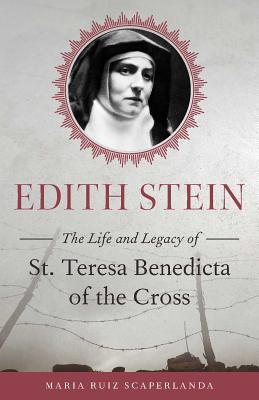In the wake of World War I when neither Jews nor women were widely accepted in academia, Edith Stein rose to prominence as a leading philosopher who thrived in the intellectual community in Germany. She shocked both her Jewish family and her academic friends when she fell in love with Jesus Christ and became a Roman Catholic
More shocking still, eleven years later, Edith entered the cloistered Carmelite order to follow a life of mystic and contemplative prayer, changing her name to Teresa Benedicta of the Cross. Edith Stein's surrender to grace is all the more visible because of the dark night that enveloped the period of history in which she lived and died -- when millions of men and women, including Edith Stein herself, were systematically murdered by the Nazi regime in the name of diligent ethnic cleansing.
Today, as the meaning of feminism is lost in a world of relativism, Edith Stein provides a model for a true feminist woman who authentically integrates faith,
